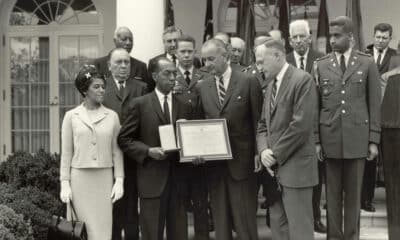Mississippi Today
Yazoo City: Home to two Super Bowl stars and so much football history


Yazoo City: Home to two Super Bowl stars and so much football history
YAZOO CITY – Today we take a football-themed tour of Yazoo City, birthplace and hometown of defensive tackle Fletcher Cox and running back Kenneth Gainwell, who will play for the Philadelphia Eagles in Sunday’s Super Bowl.
That’s right: This little town of about 10,000 residents on the southeastern edge of the Mississippi Delta produced two of the 96 players who will dress out for a game that will be watched by about 100 million viewers around the world.
Cox played at Yazoo City High, while Gainwell, a distant cousin, played at Yazoo County High, about eight miles south of town.

This seems an absolutely perfect time for this tour. Our guide is Yazoo City High School athletic director Tony Woolfolk, who played for the Yazoo High Indians, the Alcorn State Bravesand later was Cox’s high school coach. We are to meet at the high school. But first, I drive into town on Jerry Clower Boulevard, named for the famous, countrified comedian, who before becoming famous, played tackle for Mississippi State. Clower once told me, “You remember when ol’ Showboat Boykin scored seven touchdowns in one Egg Bowl for Ole Miss? Well, he stepped right on my big belly when he scored the last one.”
I take a left off Clower Boulevard onto Willie Morris Parkway, named for the great Mississippi author, once a Yazoo City halfback. Willie Morris described his hometown as “half Delta, half hills, all crazy.” Crazy about football, that’s for sure. Willie once wrote a short story about high school football titled “The Fumble” and a book titled “The Courting of Marcus Dupree.” If you haven’t read the story or the book, you should. Willie often described himself as “Yazoo City’s other Willie” in deference to fellow Yazoo native Willie Brown, the Pro Football Hall of Famer and Oakland Raiders Super Bowl hero who died in 2019. Willie Morris would quickly tell you, “Willie Brown was only the greatest cornerback in football history.”
READ MORE: RIP Willie Brown, who never forgot Mushroom Street or Yazoo City
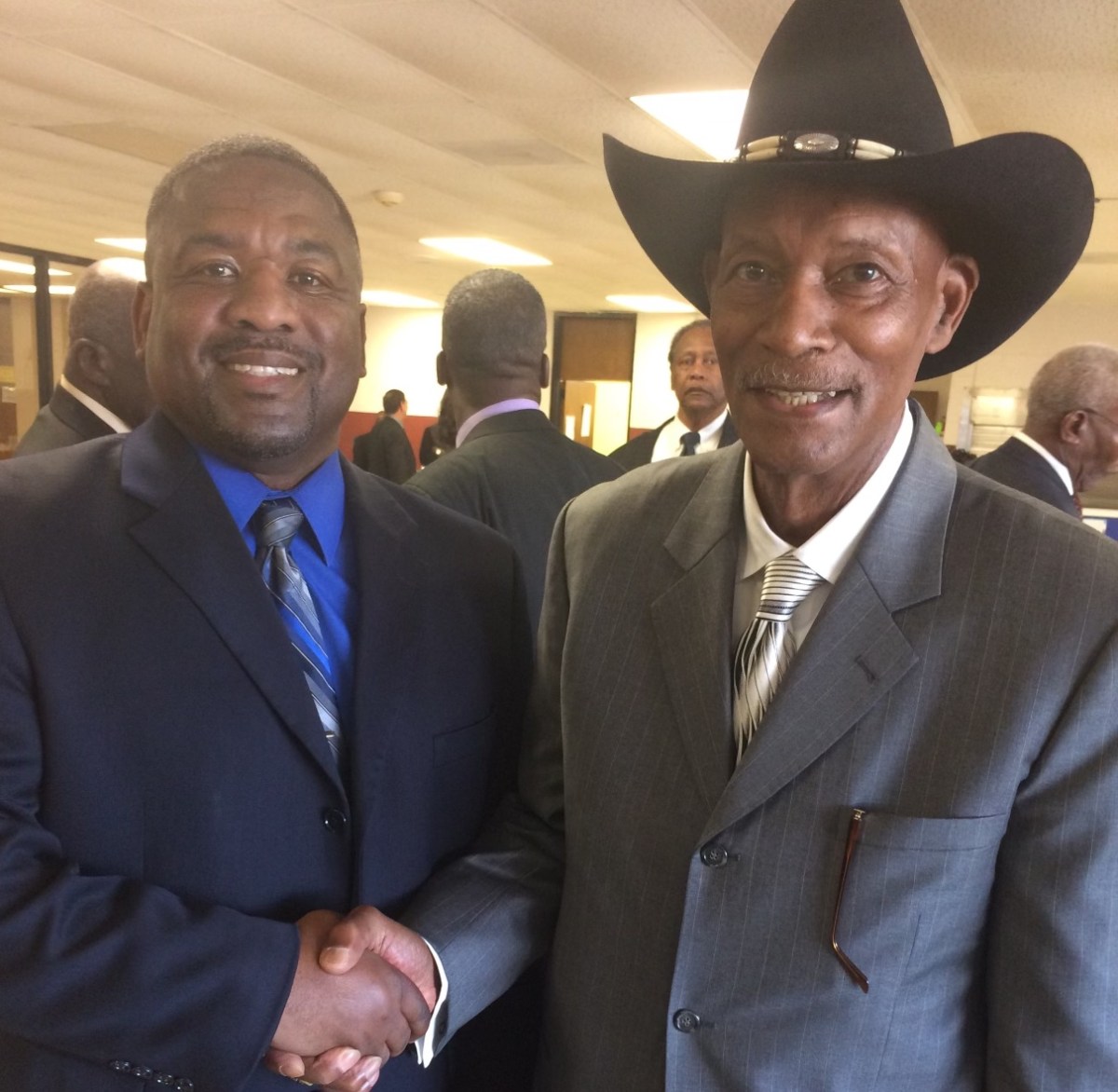
One more left turn gets us to the high school, where Woolfolk, a starting safety for the Alcorn Braves in the 1984 Alcorn-Mississippi Valley “Game of the Century,” is unloading soft drinks and snacks for that night’s basketball game. He knows a thing or two about Yazoo City football history.
First, Tony shows me the Yazoo High trophy case with literally hundreds of sports trophies and plaques, including one saluting 1968 Big Eight Conference Player of the Year Larry Kramer, once one of the most promising running backs in Mississippi history before injuries slowed him at Ole Miss. There’s another plaque that documents the retirement of Fletcher Cox’s red and white Indians jersey number 54. Asked about the first time he ever set eyes on Cox, Tony answers, “It was the summer after his eighth grade year. There were a bunch of kids out on the field playing ball and one of them was at least a head taller and a whole lot faster than the rest of them. I pointed and said, ‘Who is that kid?’ Somebody said, ‘That’s Bug-eye Cox.’”
Bug-eye?
“Yeah, that’s what everybody called him back then. His granny named him that because his eyes kind of bulged,” Tony says. “It stuck. Over time, I shortened it to Bug. I still call him Bug, but I knew the first time I saw him, we had us one — a potential superstar. Even then, he was bigger than everybody else and he could really, really run. You know Bug ran the 4 x 100 relay in track for us.”
I did not know that, but the idea of a 6-foot, 4-inch, 240-pound sprinter is kind of frightening. (Cox, a six-time Pro Bowler, now weighs 310.)
PODCAST: The ‘Sip in the Super Bowl
From the trophy case we move on to the football field at what is now called Fletcher Cox Stadium. We go through the locker room with nice wooden lockers provided by Bug-Eye himself. We go through the weight room with 10 racks of weights, all paid for by Fletcher Cox, who apparently does not forget where he comes from. “When Bug came through here, we only had two weight racks,” Tony says. “He wanted to make sure these kids have more.”
Tony says Fletcher’s mom, who was a single parent, didn’t want him to play high school football. “She was afraid he would get hurt,” Tony says. “I told her she didn’t need to worry about that. The only concern was how many people he was gonna hurt.”
There have been a few, first at Yazoo, then at Mississippi State and finally with the Eagles, where he has played all of his 11-year career after being the 12th pick of the first round of the 2012 draft.
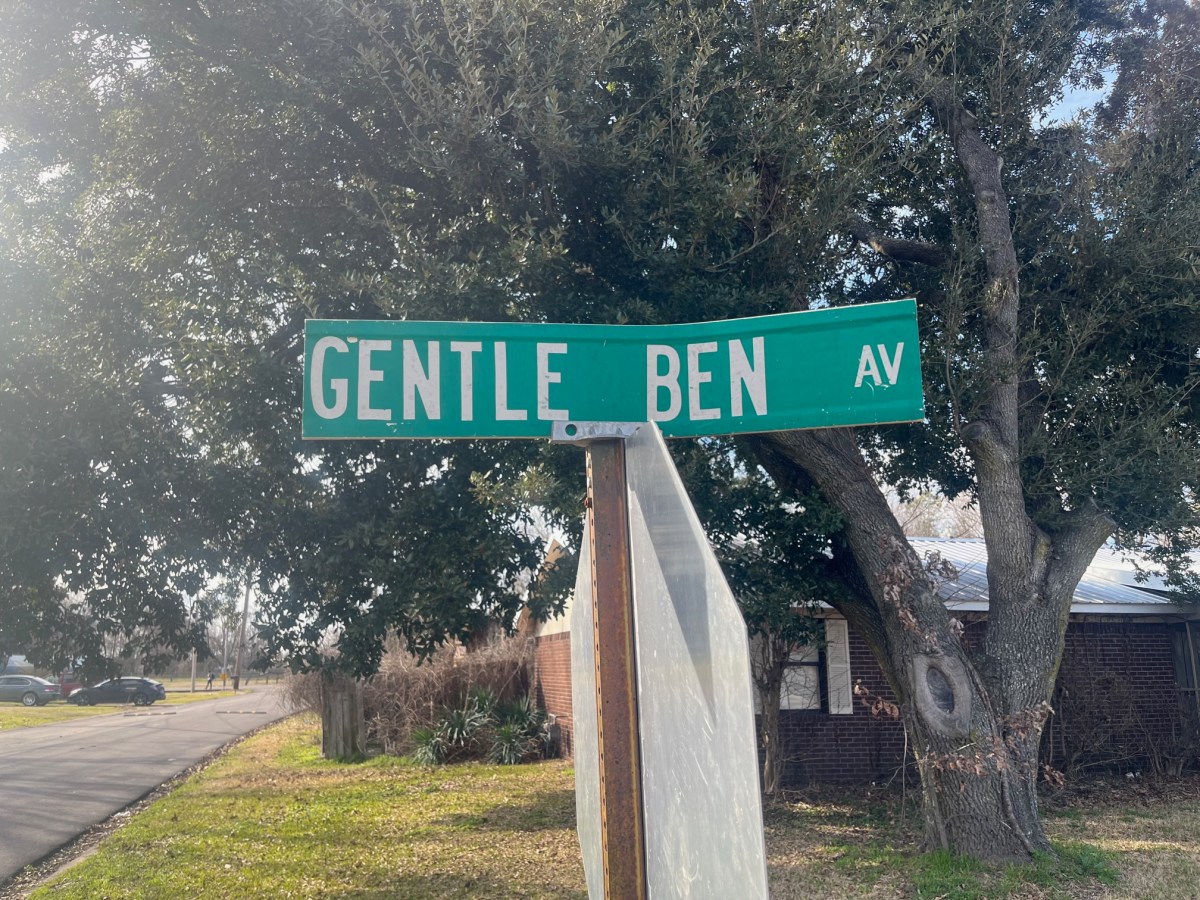
Our tour guide suggests a ride around Yazoo. He wants to show us where Fletcher grew up in an area neighborhood called Jonestown. We take River Road, which runs along side the Yazoo River, for which the town is named. We are actually searching for Fletcher Cox Street, going slowly by the street signs until we pass Gentle Ben Street named for Gentle Ben Williams, another remarkable defensive lineman from Yazoo, the first Black football player at Ole Miss and a 10-year star with the Buffalo Bills. Turns out, Ben Williams and Fletcher Cox grew up in the same neighborhood, only a few streets apart. That has to set records for defensive tackles per capita.
“I got a lot of my best players from Jonestown,” Tony says.
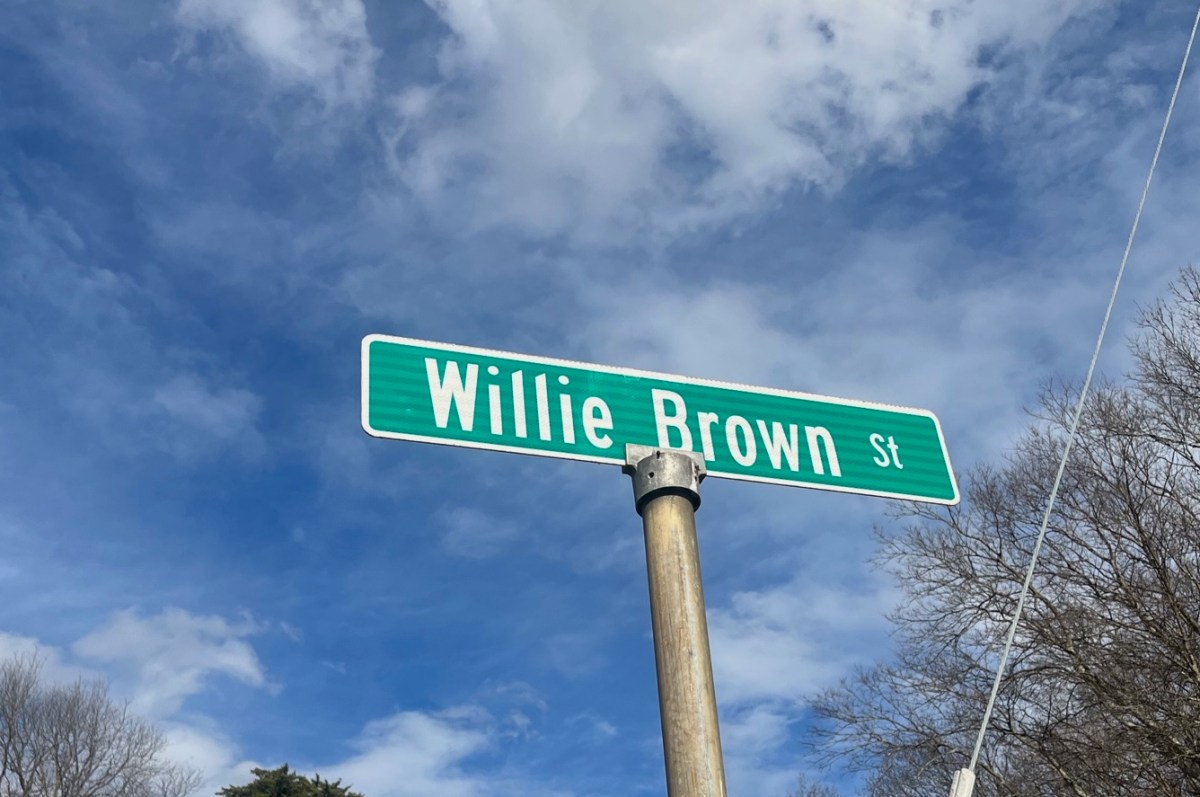
I tell Tony that Willie Morris used to tell me about the Brickyard Hill neighborhood, where Willie Brown grew up and where Mushroom Street has become Willie Brown Street. We head that way and I quickly learn where the “half hills” of Yazoo City are. Willie Brown Street tops one of the biggest hills.
Brown, who played for the legendary Eddie Robinson at Grambling, made one of the most iconic plays in Super Bowl history 45 years ago. That’s when he intercepted Fran Tarkenton’s pass and returned it 75 yards for a game-clinching touchdown in the Raiders’ victory over the Minnesota Vikings.
Says Tony Woolfolk, “When I was growing up, Willie was everybody’s hero in Yazoo City. I played in football shoes that Willie Brown sent home to us. They were shoes that the Raiders had already used, but they were like brand new to us. We were playing NFL shoes. It meant the world to us.”
Tony makes another stop on the way back to the school. We’re at the Yazoo middle school, that sits in what used to be a public park in the early 1900s, Tony says. “Take a look at that sign over there,” Tony says.
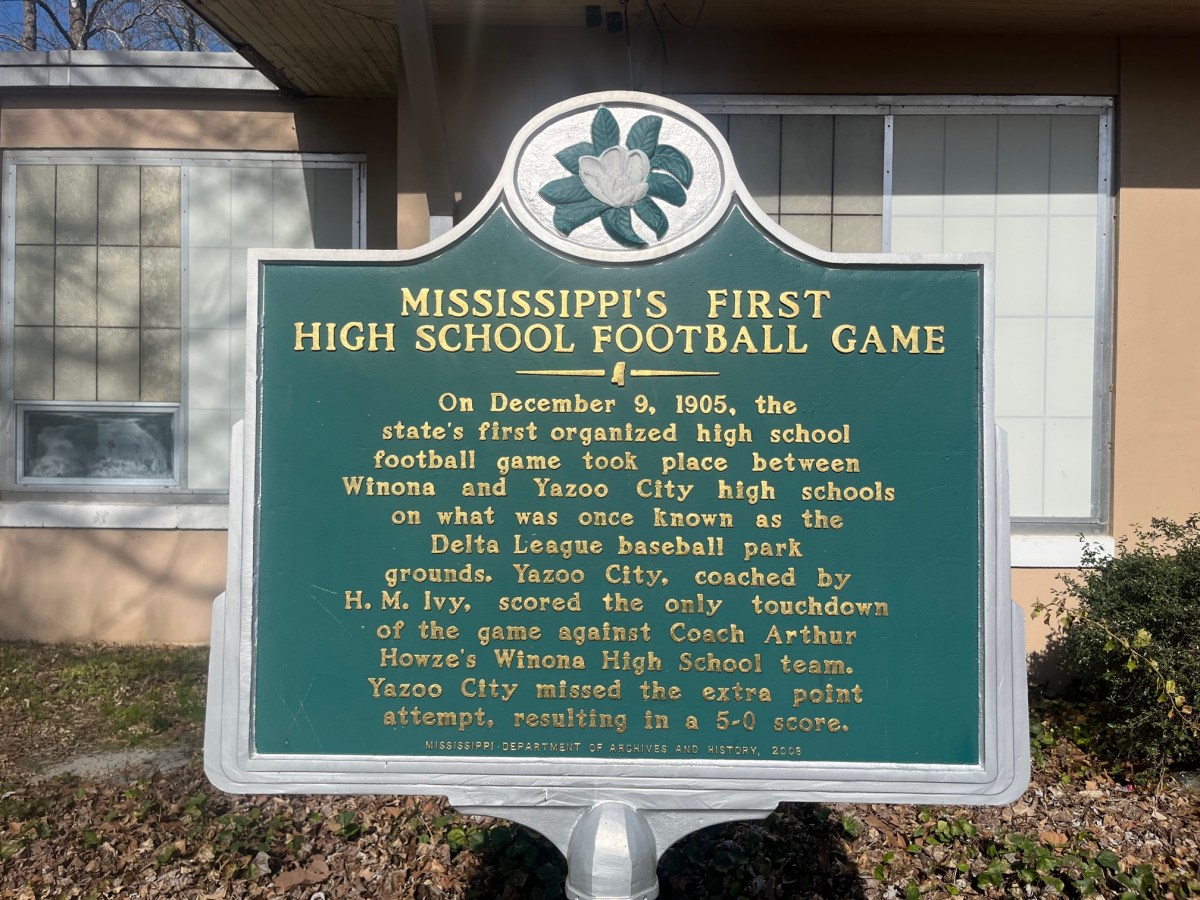
So I do, and it commemorates the site of Mississippi’s first organized high school football game played in 1905. Yazoo City won, of course, beating Winona 5-0.
There’s just so much football history here in Yazoo. We haven’t even mentioned the Heidel brothers (Jimmy, Ray and Roy) of Ole Miss fame; Houston Hoover (Jackson State), who played seven years in the NFL for three different teams; Elex Price (Alcorn State), an eight-year pro with the New Orleans Saints; or Gov. Haley Barbour, who played both football and baseball for the Yazoo Indians. We could go on and on, but it’s time to go and Tony has a basketball game that evening.
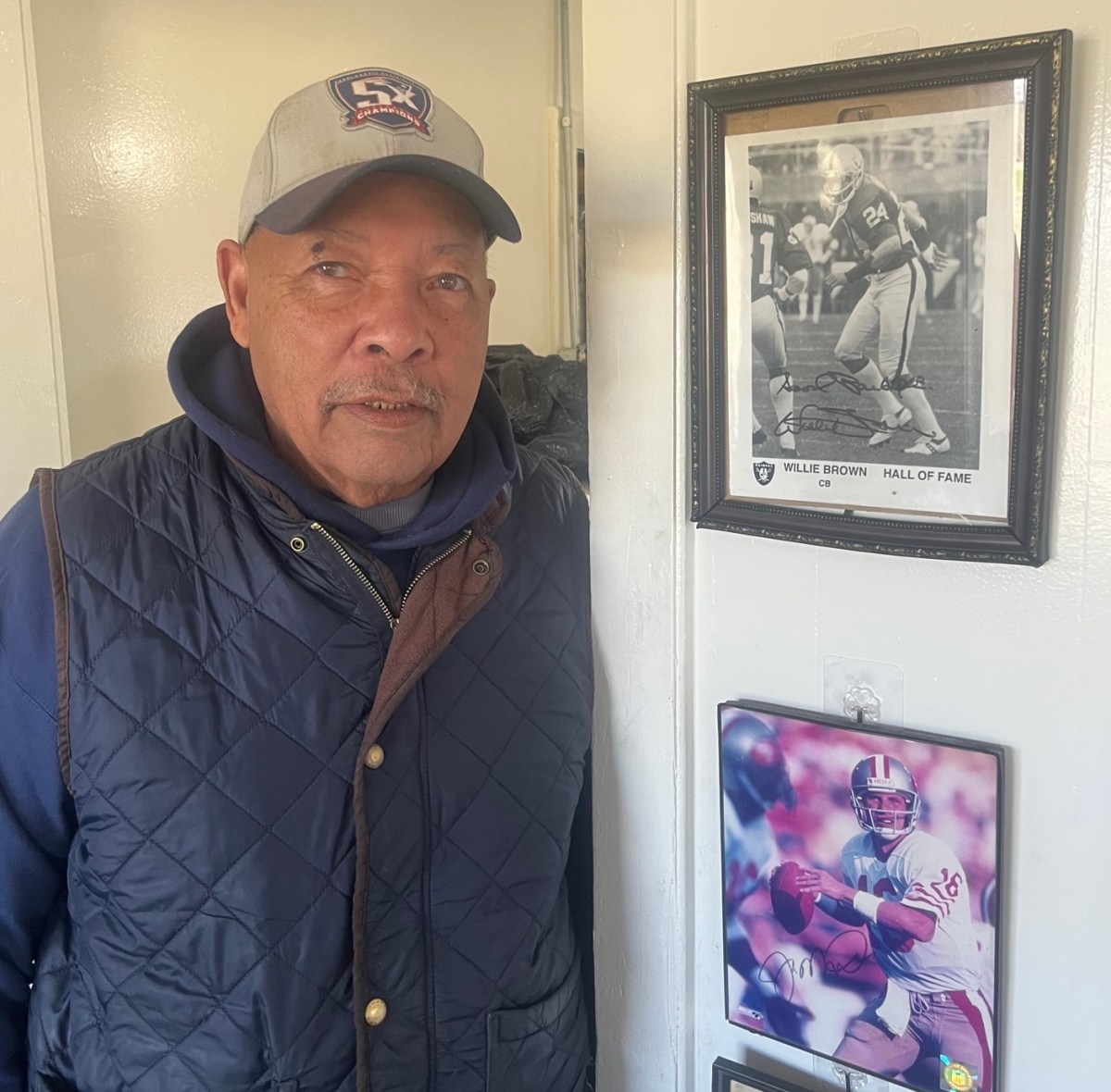
I head back south toward Jackson, more than little hungry from all the sight-seeing. So I stop at the Hall of Fame Restaurant , a little spot I’ve long heard about on the east side of U.S. 49 in an area known as Little Yazoo. There, I am greeted by David Brown, who happens to be Willie Brown’s older brother and the proprietor. The resemblance between David and his younger brother is startling.
I ask him, “Did you play football, too?”
“Man, I taught Willie how to play,” David says, smiling.
“Hungry?” he asks.
“Starving,” I said.
He shows me the menu, and there it is right there at the top. I order the Willie Brown Burger. Five minutes later, I get it, the biggest and surely one of the best burgers I’ve ever encountered. I tell David you could do bicep curls with that hamburger.
He smiles. “You ain’t gonna be hungry for a while,” he says.
And he is right. I leave, sated both on the Willie Brown Burger and rich Yazoo history.
This article first appeared on Mississippi Today and is republished here under a Creative Commons license.
Did you miss our previous article…
https://www.biloxinewsevents.com/?p=207891
Mississippi Today
On this day in 1966, Milton Olive III awarded Medal of Honor

April 21, 1966

Milton Olive III became the first Black soldier awarded the Congressional Medal of Honor in the Vietnam War.
Olive had known tragedy in his life, his mother dying when he was only four hours old. He spent his early youth on Chicago’s South Side and then moved to Lexington, Mississippi, where he stayed with his grandparents.
In 1964, he attended one of the Mississippi Freedom Schools, and he joined the work in Freedom Summer, registering Black voters. Concerned that he might be killed, his grandmother sent him back to Chicago, where he joined the military on his 18th birthday.

“You said I was crazy for joining up,” he wrote. “Well, I’ve gone you one better. I’m now an official U.S. Army Paratrooper.”
He joined the U.S. Army’s 173rd Airborne Brigade and became known as “Preacher” for his quiet demeanor and his tendency to avoid cursing. On Oct. 22, 1965, helicopters dropped Olive and the 3rd Platoon of Company B into a dense jungle near Saigon. They returned fire on the Viet Cong, who retreated. As the soldiers pursued the enemy, a grenade was thrown into the middle of them. Olive grabbed the grenade and fell on it, absorbing the blast with his body.
“It was the most incredible display of selfless bravery I ever witnessed,” the platoon commander said.
Olive saved his fellow soldier’s lives. Then-President Lyndon B. Johnson presented the medal to his father and stepmother, and he has since been honored with a park and a junior college named for him.
This article first appeared on Mississippi Today and is republished here under a Creative Commons Attribution-NoDerivatives 4.0 International License.![]()
Mississippi Today
Podcast: Mississippi Democratic legislative leader says GOP bickering prevents work on transformative issues

Mississippi House Minority Leader Robert Johnson discusses the 2025 legislative session that was derailed by Republican infighting with Mississippi Today’s Geoff Pender and Bobby Harrison, and outlines issues he’d like to see addressed in a pending special session.
READ MORE: As lawmakers look to cut taxes, Mississippi mayors and county leaders outline infrastructure needs
This article first appeared on Mississippi Today and is republished here under a Creative Commons Attribution-NoDerivatives 4.0 International License.
Mississippi Today
‘Trainwreck on the horizon’: The costly pains of Mississippi’s small water and sewer systems

This is the first of a two-part story.
“This state ain’t nothing but a big Jackson,” Central District Public Service Commissioner De’Keither Stamps said during a December meeting that harkened back to his time as a capital city councilman. “We got a whole statewide trainwreck that’s on the horizon.”
Over a thousand drinking water systems, most of them small, and hundreds of additional sewer systems operate in Mississippi. Nearly 60 percent of those water systems, according to the Environmental Protection Agency, have committed a violation in the last three years, and one in three sewer systems in the state have violated pollution limits in just the last year.
In 2014, a couple in DeSoto County, the wealthiest part of the state, sent a letter with photos of their yard to the Mississippi Department of Environmental Quality. Tarnishing their garden were small clumps of feces and wads of wet toilet paper stuck together.
“When having company with children playing in our backyard last summer, suddenly, water and sewage began rushing out of the back flow valve, into the flower bed, across our yard and into the backyard where the children were playing,” the Olive Branch couple wrote. “Everyone had to come inside due to the sewage rushing in our yard…This went on for several hours.”
The culprit, MDEQ later identified, was the malfunctioning collection system at the Belmor Lakes Subdivision sewage treatment facility, which serves about 200 people. The couple continued sending complaints the next four years, while the state sent repeated notices of violation to the plant’s operator. The facility allowed sewage overflows from at least 2011 to 2020, records show, and it remains out of compliance to this day.
Another facility, at the Openwood Plantation in Vicksburg, exceeded fecal coliform limits as early as 2004. A 2011 inspection noted the plant’s effluent structure “has been leaking for at least two years, still not repaired.” The next year, a neighbor complained to MDEQ about a funky smelling green liquid on their property. The agency found not only was the treatment plant responsible, but it also leaked raw sewage that flowed into a local recreational lake. Over two decades after the initial violation, the facility still regularly exceeds, by significant degrees, water pollution limits for chemicals such as E.coli, chlorine and ammonia nitrogen.
Small water and sewer systems around Mississippi have for years struggled to stay afloat because of, to some degree, the nature of being a small water or sewer system. Now, as they try to correct deficiencies during a time of growing regulations and higher costs, many cash-strapped systems are facing the hard reality of needing to raise rates for necessary services in the country’s second poorest state.


“System officials think that part of the job is to hold rates at a low level, and that doesn’t necessarily jive with what the need is,” said Bill Moody, director of the Bureau of Water Supply at the Mississippi State Department of Health.
Moody spoke anecdotally of system owners who bragged about keeping rates low, unaware of the revenue shortfall they would soon have.
A 2023 EPA report on funding needs for drinking water systems found that, over the next 20 years, Mississippi will have an $8.1 billion need. That equals $2,751 per Mississippian, the fourth largest per capita need of any state. Small systems in the state had a per capita need 26% higher than that, the report’s data shows, equalling $3,456 per person.

The United States, and especially Mississippi, suffers from what industry wonks call “fragmentation.” Compared to other countries, the U.S. has a spread out population, meaning its utilities are spread out, too. But by having so many water and sewer systems serving small pockets of people, scant infrastructure funding is spread to the point it loses spending power.
“ The problems the city of Jackson has had, for instance, is replayed over and over and over again in these smaller systems,” said MDEQ executive director Chris Wells. “ What you have is these small systems that, for one reason or other, aren’t properly functioning.”
For instance, Wells explained, a developer with no utility experience might build and operate a sewage lagoon to serve a subdivision. Sometimes the developer moves or dies and passes the reins onto the homeowners association.
“We’ve had situations where the person who built the lagoon or the treatment system literally disappears, abandons the system,” Wells said.
While consolidating small systems would help, experts say, some are so far behind that their customers’ bills will go up regardless.
!function(){“use strict”;window.addEventListener(“message”,(function(a){if(void 0!==a.data[“datawrapper-height”]){var e=document.querySelectorAll(“iframe”);for(var t in a.data[“datawrapper-height”])for(var r,i=0;r=e[i];i++)if(r.contentWindow===a.source){var d=a.data[“datawrapper-height”][t]+”px”;r.style.height=d}}}))}();
“It gets a little depressing, I don’t know what the answer is,” Greg Pierce, a water policy expert at the University of California, Los Angeles said. “Usually these systems are under-maintained. They have low rates, but they also have low quality and low reliability.”
Each year, the Health Department takes the temperature of the state’s drinking water systems. In the last two years, the agency found 83 providers that were in “poor” condition. While the median population for a water system in Mississippi is around 1,400 people, that number drops to 422 for the “poor” performing systems, about 80% of which serve under a 1,000 people.
In the small town of Utica, for instance, the Reedtown Water Association has frequent power outages and boil water notices. Stamps, the Public Service commissioner for the area, said necessary repairs would cost $4 million to $5 million, “an amount far beyond what the water association and its (1,200) customers can afford.”
One water association with just 829 customers – Cascillia, in Tallahatchie County – had 83 violations in just the last 5 years, including exceeding arsenic limits in 2023. Several other small water systems (such as the Moore Bayou Water Association in Coahoma County, or Truelight Redevelopment in Sharkey County) are considered “serious violators” by the EPA for, in part, not meeting limits on disinfectant byproducts that were set in 2006. Of the state’s 19 “serious violators,” more than half serve 1,200 or fewer people. The EPA defines a small water system as serving 3,300 people or fewer.

Smaller systems struggle nationwide. A 2018 study from researchers at the University of California, Irvine and Columbia University found that systems in rural areas around the country see “substantially” more violations than those in urban areas.
Wells, of MDEQ – which oversees sewer compliance – said it’s a challenge motivating struggling systems to meet permit limits. The state can technically take over a system, but MDEQ doesn’t have the resources to do so, and levying large fines can be counterproductive because ratepayers ultimately have to make up the difference.


“Every dollar that we take in penalties is one less dollar that the community has to spend toward the upgrades that they need to make,” he said.
Wells described that, for some repeat offenders, sending them violation notices is like “trying to get blood out of a turnip.” While MDEQ works with systems to correct deficiencies, he said, sometimes the best answer is a third-party utility coming in to save the day.
The American Society of Civil Engineers’ 2024 “Infrastructure Report Card” estimated that Mississippi, between all its water and sewer systems, needed $9.4 billion in investments over the next 20 years.
“The capacity of drinking water systems in the state is mediocre,” the report says, adding that “wet weather conditions, inconsistent maintenance, and a lack of rehabilitation pose extreme threats to the state’s wastewater infrastructure.”

Between the historic amounts of federal funding from the American Rescue Plan Act and the Infrastructure Investment and Jobs Act, Mississippi received roughly $1.2 billion for water and wastewater improvements, or just 13% of the state’s projected need.
Especially with large expenses looming to meet the new national standards for PFAs, some small systems are looking to consolidate to ease financial headaches. The Oxford Eagle reported last year, for instance, that the Punkin Water Association would soon join the city of Oxford’s service area after years of water quality issues.
But given the spacial challenges of connecting far apart systems – especially in Mississippi, which, according to Census data, has the fourth most rural population of any state – some say there are limits to how much water providers can actually unify.

“When it comes to the physical pipes in the ground, you can’t move them,” said Mildred Warner, a professor of city and regional planning at Cornell University, explaining that many systems can only consolidate in terms of management.
Mississippi is experimenting with consolidating management for some of its small, privately owned water and sewer systems. In 2021, a company called Great River began buying struggling systems around the state. A subsidiary of the national firm Central States Water Resources, the company focuses on struggling, poorly financed systems that most large utility firms wouldn’t touch. Now operating in 11 states, the company has access to more resources than what a small operator would, and can reduce overall costs by spreading them out throughout its service area.
In Mississippi, part of the PSC’s job is to make sure private utilities that have a monopoly over a given service area, like Great River, only charge customers for what their services are worth, plus enough profit to stay in business. Given the challenges of some small systems in the state, the PSC welcomed the company’s help. But Great River, as is common when a large private utility takes over, quickly imposed steep rate increases to fund its repairs.
As Great River’s ratepayers plead with the PSC to soften the financial blow, the condition of some Mississippi water and sewer providers suggest those basic services will have to cost much more than they used to, especially for customers of small systems.
Part two of this story will further explore the Great River’s impact on ratepayers, and what the future holds for small water and sewer systems struggling to stay afloat.
This article first appeared on Mississippi Today and is republished here under a Creative Commons Attribution-NoDerivatives 4.0 International License.![]()
-

 News from the South - Alabama News Feed7 days ago
News from the South - Alabama News Feed7 days agoFoley man wins Race to the Finish as Kyle Larson gets first win of 2025 Xfinity Series at Bristol
-

 News from the South - Alabama News Feed7 days ago
News from the South - Alabama News Feed7 days agoFederal appeals court upholds ruling against Alabama panhandling laws
-

 News from the South - Missouri News Feed4 days ago
News from the South - Missouri News Feed4 days agoDrivers brace for upcoming I-70 construction, slowdowns
-

 News from the South - North Carolina News Feed6 days ago
News from the South - North Carolina News Feed6 days agoFDA warns about fake Ozempic, how to spot it
-

 News from the South - Virginia News Feed5 days ago
News from the South - Virginia News Feed5 days agoLieutenant governor race heats up with early fundraising surge | Virginia
-

 News from the South - Missouri News Feed6 days ago
News from the South - Missouri News Feed6 days agoAbandoned property causing issues in Pine Lawn, neighbor demands action
-

 Mississippi Today4 days ago
Mississippi Today4 days agoSee how much your Mississippi school district stands to lose in Trump’s federal funding freeze
-

 News from the South - West Virginia News Feed7 days ago
News from the South - West Virginia News Feed7 days agoHeart disease survivor spends 15th birthday raising money for American Heart Association









